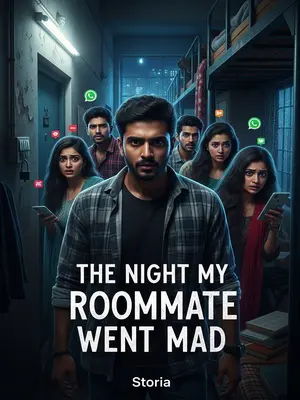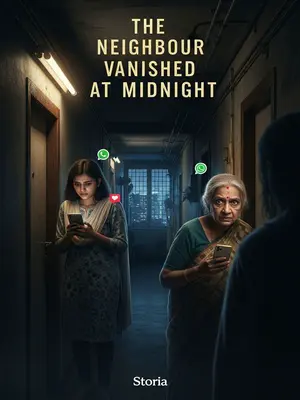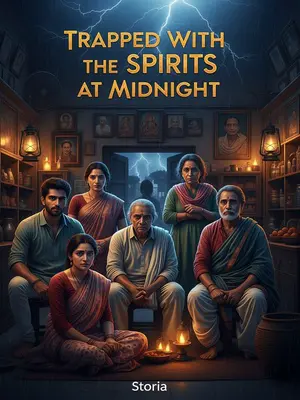Chapter 2: Shadows in the Bungalow
A sea-facing bungalow in Goa, sprawling over 400 square metres, two car parks, palm trees rustling and the salty tang of the sea—on paper, it sounds like a dream. The kind of home that Mumbai folks would post about in WhatsApp groups for years. But for Mrs. Meera Kapoor, this house was quickly becoming a nightmare.
Sometimes, she’d stare at the waves crashing below and think, 'Why does my heart feel so uneasy in such a beautiful place?'
In 2019, she and her new husband, Rajeev, received the keys to their new home. It was a big day: both families arrived with mithai and marigold garlands. Aunties admired the jali work, and Rajeev’s mother did a quick puja at the entrance, insisting, 'Beta, pehle shubh kar lete hain.' Meera still remembered touching the threshold with her right foot, as tradition demanded, even though she’d never been superstitious herself.
Perched on a cliff in Panaji’s suburbs, the house was secluded but peaceful. Security was supposed to be top-class. Neighbours rarely came unannounced. The gate was always locked. Ganpat, the chowkidar, would chat with Rajeev about cricket, assuring him, 'Yahan kuch nahi hota, sir—kabhi kabhi bandar aate hain bas.'
But soon after moving in, Meera began to feel it—someone else might be in the house. It started as a prickling at the back of her neck in the empty corridors, an echo of footsteps that didn’t match her own. There’s no proper word for it in India, but in the West, they call it phrogging: when someone secretly lives in your home.
Meera had never heard the term. For her, it was the stuff of Sunday newspaper supplements—something you read and forget. But the feeling was growing. In India, people talk of buri nazar or evil eyes, but someone physically living unseen inside your house? Unthinkable. Yet, the impossible was seeping in…
Meera didn’t believe in ghosts, but strange things began happening. She prided herself on being modern—a practical, unflappable working woman. Still, the mind plays tricks, especially at night when the wind rattles the windows and the tube light flickers for no reason.
The first time she sensed something was wrong was one September evening. The Goa monsoon was drumming on the tiled roof. Meera wrapped her dupatta tighter, slipped into rubber slippers—her mother’s voice in her head, 'Zameen thandi hai, chill ho jayega.' She headed to the garage to organise things. Most belongings were still packed, boxes stacked haphazardly.
She promised herself to clear up a few things—like everyone promises, but never does. They’d planned to sort it all gradually.
But as soon as she pushed open the garage door, she blurted, 'Arrey yaar…'
Her voice echoed in the musty air, startlingly loud. In India, a shocked 'Arrey yaar!' or 'Hai Ram!' carries half your anxiety with it. The boxes, once sealed, were all open. Their contents were scattered—a cyclone of kitchen utensils and shawls, trophies and photo albums crushed under books. Meera stood frozen, the familiar scent of mothballs mixing with something musty and unfamiliar.
Her first thought: 'There’s been a break-in!'
She clutched her dupatta, as if it could shield her from whatever trouble had entered their new home. She ran inside and called Rajeev, her voice high and trembling: 'Rajeev, jaldi ghar aa jao na, kuch gadbad hai!'
Rajeev arrived, just as bewildered. 'I never touched those boxes,' he insisted, his eyebrows knotted. Navy calm and methodical, he squatted down beside the boxes, scanning the mess with his officer’s eye.
He squeezed Meera’s shoulder gently. 'Don’t worry, Meera. Let’s check what’s missing before panicking.'
He circled the garage, measured and composed. 'If someone broke in, wouldn’t they have taken something valuable?'
Meera, still shaken, pressed, 'Huh? Why not?'
He picked up his father’s Omega watch from the floor. 'Chor ko toh paisa chahiye. Yeh toh yahin pada hai.'
Meera noticed the jewellery boxes on the floor, but the jewellery—her grandmother’s bangles, her mangalsutra—were all untouched. Only the boxes were battered.
After checking, nothing was missing. Relief, but also confusion—nothing made sense.
Rajeev pointed to the scattered items. 'Actually… dekho, yeh sab circle mein kyun hai?' He traced a rough shape among the objects. Meera squinted—yes, things were arranged in a clumsy circle: a photograph, prayer beads, a spoon, each at odd angles.
If not a thief, then who?
Could it be a prank by domestic help? But no one had been hired yet. Or something stranger?
The circle reminded her of Zee TV horror serials—rituals to summon spirits. She swallowed hard, pushing away superstition.
A wave of unease washed over her. She shivered, clutching her dupatta, a crow cawing outside as if the house itself held its breath.
She hesitated, fiddling with her dupatta, then finally said, 'Could it be… the kids playing? Sorry, I’m just guessing.'
Rajeev pressed her gently: 'Kya hua? Bol na, Meera.'
The two children, Arjun and Adi, weren’t her own. In India, stepmothers tread carefully—never too strict, never too indulgent. She’d packed their tiffins, bought comics, tried to blend in, but the boys only ever called her 'Meera aunty.'
Kids that age are mischievous. But could they have done this? She couldn’t picture them making such a mess with precious things.
The couple called the boys. Arjun shook his head, serious as a judge. Adi looked scared, as if about to be scolded. Rajeev, arms folded, gave them the classic father’s stare. 'Sach batao. No trouble if you just tell the truth.'
But Meera felt the kids weren’t lying. She saw confusion in their eyes, wanted to ruffle Arjun’s hair, but stopped herself. Sometimes, silence is the best way to keep peace in an Indian home. She pressed her lips together and let it go for now.
But as she waited, a second strange event occurred…












